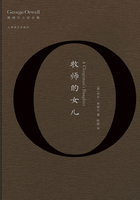Throwing herself upon the floor, and encircling thechildren in her arms, she poured forth such touchingwords as only maternal love and kindness can suggest.
They nestled closely to her, as if there only was there anysafety or protection. At last they slept, their heads restingupon her lap. While they slumbered, she smoothed thehair back from their little foreheads, and talked to themall night long. She called them her darlings—her sweetbabes—poor innocent things, that knew not the miserythey were destined to endure. Soon they would have nomother to comfort them—they would be taken from her.
What would become of them? Oh! she could not live awayfrom her little Emmy and her dear boy. They had alwaysbeen good children, and had such loving ways. It wouldbreak her heart, God knew, she said, if they were takenfrom her; and yet she knew they meant to sell them, and,may be, they would be separated, and could never seeeach other any more. It was enough to melt heart of stoneto listen to the pitiful expressions of that desolate anddistracted mother. Her name was Eliza; and this was thestory of her life, as she afterwards related it:
She was the slave of Elisha Berry, a rich man, livingin the neighborhood of Washington. She was born,I think she said, on his plantation. Years before, hehad fallen into dissipated habits, and quarreled withhis wife. In fact, soon after the birth of Randall, theyseparated. Leaving his wife and daughter in the housethey had always occupied, he erected a new one nearby,on the estate. Into this house he brought Eliza; and, oncondition of her living with him, she and her childrenwere to be emancipated. She resided with him there nineyears, with servants to attend upon her, and providedwith every comfort and luxury of life. Emily was his child!
Finally, her young mistress, who had always remainedwith her mother at the homestead, married a Mr. JacobBrooks. At length, for some cause, (as I gathered fromher relation,) beyond Berry’s control, a division of hisproperty was made. She and her children fell to the shareof Mr. Brooks. During the nine years she had lived withBerry, in consequence of the position she was compelledto occupy, she and Emily had become the object ofMrs. Berry and her daughter’s hatred and dislike. Berryhimself she represented as a man of naturally a kindheart, who always promised her that she should have herfreedom, and who, she had no doubt, would grant it toher then, if it were only in his power. As soon as they thuscame into the possession and control of the daughter, itbecame very manifest they would not live long together.
The sight of Eliza seemed to be odious to Mrs. Brooks;neither could she bear to look upon the child, half-sister,and beautiful as she was!
The day she was led into the pen, Brooks had broughther from the estate into the city, under pretence thatthe time had come when her free papers were to beexecuted, in fulfillment of her master’s promise. Elatedat the prospect of immediate liberty, she decked herselfand little Emmy in their best apparel, and accompaniedhim with a joyful heart. On their arrival in the city,instead of being baptized into the family of freemen, shewas delivered to the trader Burch. The paper that wasexecuted was a bill of sale. The hope of years was blastedin a moment. From the hight of most exulting happinessto the utmost depths of wretchedness, she had that daydescended. No wonder that she wept, and filled the penwith wailings and expressions of heart-rending woe.
Eliza is now dead. Far up the Red River, where it poursits waters sluggishly through the unhealthy low lands ofLouisiana, she rests in the grave at last—the only restingplace of the poor slave! How all her fears were realized—how she mourned day and night, and never would becomforted—how, as she predicted, her heart did indeedbreak, with the burden of maternal sorrow, will be seenas the narrative proceeds.















